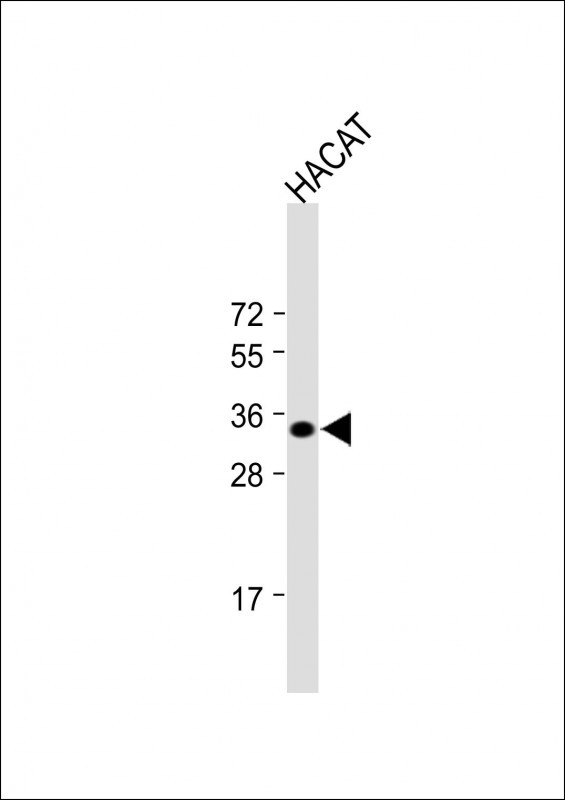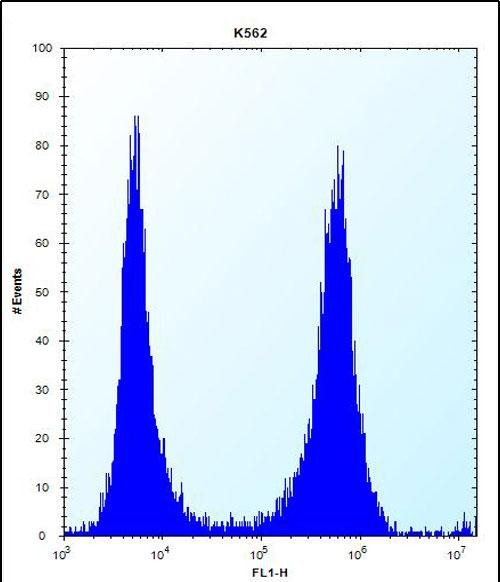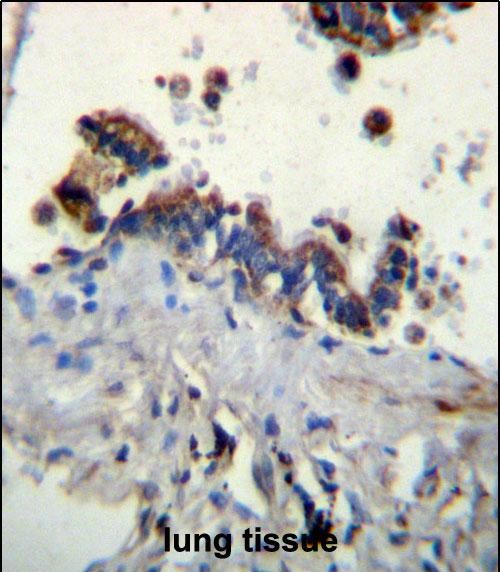



| WB | 咨询技术 | Human,Mouse,Rat |
| IF | 咨询技术 | Human,Mouse,Rat |
| IHC | 1/100-1/500 | Human,Mouse,Rat |
| ICC | 技术咨询 | Human,Mouse,Rat |
| FCM | 1/10-1/50 | Human,Mouse,Rat |
| Elisa | 咨询技术 | Human,Mouse,Rat |
| Aliases | Ficolin-3, Collagen/fibrinogen domain-containing lectin 3 p35, Collagen/fibrinogen domain-containing protein 3, Hakata antigen, FCN3, FCNH, HAKA1 |
| Entrez GeneID | 8547 |
| WB Predicted band size | 32.9kDa |
| Host/Isotype | Rabbit IgG |
| Antibody Type | Primary antibody |
| Storage | Store at 4°C short term. Aliquot and store at -20°C long term. Avoid freeze/thaw cycles. |
| Species Reactivity | Human |
| Immunogen | This FCN3 antibody is generated from rabbits immunized with a KLH conjugated synthetic peptide between 214-243 amino acids from the C-terminal region of human FCN3. |
| Formulation | Purified antibody in PBS with 0.05% sodium azide. |
+ +
以下是关于FCN3抗体的3篇参考文献及其简要摘要:
---
1. **"Ficolins: Pattern Recognition Molecules of the Innate Immune System"**
*Authors: Matsushita M, Fujita T.*
**摘要**:该综述探讨了纤维胶凝蛋白(包括FCN3)在先天免疫中的作用,重点描述了FCN3通过识别病原体相关分子模式激活补体系统的机制,并提及相关抗体的研究在功能分析中的应用。
2. **"Ficolin-3 Deficiency Is Associated with Disease and an Increased Risk of Systemic Infections"**
*Authors: Munthe-Fog L, Hummelshøj T, Ma YJ, et al.*
**摘要**:研究发现FCN3缺陷患者血清中FCN3蛋白水平显著降低,使用特异性抗体检测发现其与反复感染和炎症疾病相关,提示FCN3在抗病原体防御中的关键作用。
3. **"Development of a Sandwich ELISA for Quantifying Ficolin-3 in Human Serum"**
*Authors: Honoré C, Rørvig S, Hummelshøj T, et al.*
**摘要**:本研究开发了一种基于FCN3抗体的夹心ELISA检测方法,用于定量人血清中的FCN3.验证了其在临床样本中的灵敏度和特异性,为疾病生物标志物研究提供工具。
---
如需更多文献或具体应用场景,可进一步补充关键词优化检索!
Ficolin-3 (FCN3), also known as Hakata antigen, is a soluble pattern recognition protein in the innate immune system. It belongs to the ficolin family, which includes FCN1. FCN2. and FCN3. characterized by a collagen-like domain and a fibrinogen-like recognition domain. FCN3 is primarily synthesized in the liver and secreted into the bloodstream, where it functions as a pathogen-associated molecular pattern (PAMP) sensor. It binds to acetylated carbohydrates and other ligands on microbial surfaces, activating the lectin complement pathway via associated serine proteases (MASPs), leading to opsonization, inflammation, and pathogen clearance.
FCN3 antibodies are essential tools for studying its role in immunity and disease. They enable detection of FCN3 expression in tissues or biological fluids using techniques like ELISA, Western blot, and immunohistochemistry. Research links FCN3 deficiency to increased susceptibility to infections, while elevated levels correlate with autoimmune disorders (e.g., systemic lupus erythematosus) and chronic diseases like fibrosis or cancer. Antibodies also help explore FCN3 interactions with pathogens (e.g., *Streptococcus pneumoniae*) or cellular receptors, shedding light on its dual role in host defense and immune regulation. Clinical interest focuses on FCN3 as a potential biomarker for disease progression or therapeutic targeting. However, its precise mechanisms and context-dependent functions remain under investigation, highlighting the continued importance of FCN3 antibodies in basic and translational research.
×